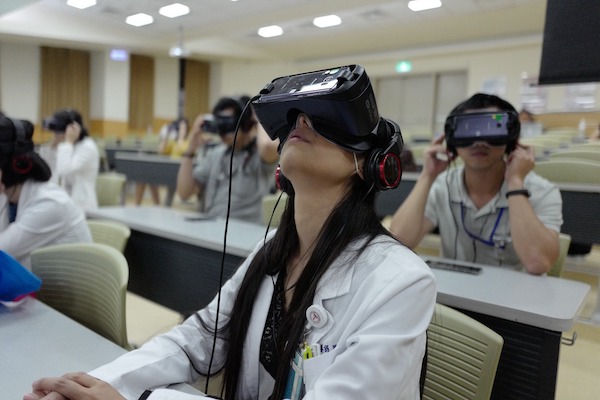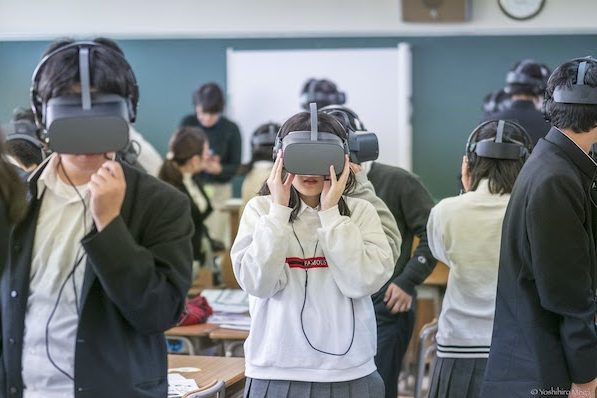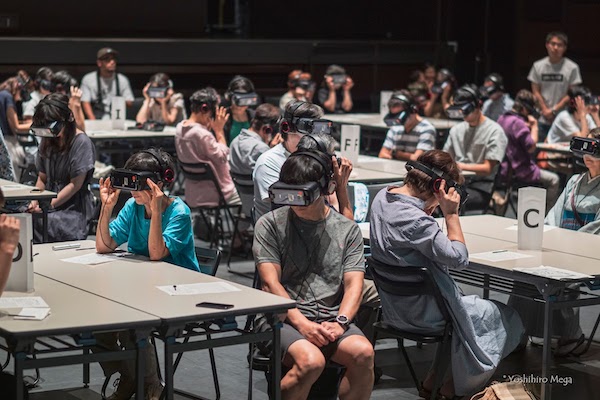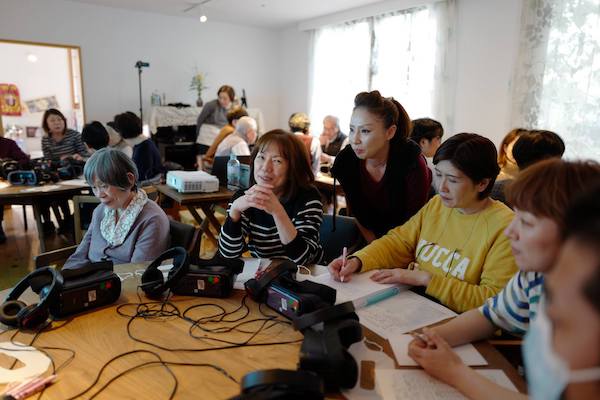2022 HAPI Second Prize Winner
It is estimated that the number of people aged 65 and over with dementia in Japan will exceed 6 million in 2020 and reach about 7 million in 2025 (about 1 in 5 older people). Efforts to adress dementia are therefore crucial in Japan, and since dementia can happen to anyone, there has been a rapid spread of the idea that we need to create a society where all people—those with the disease, their caregivers, and their community—can live better with dementia.
Living better with dementia requires a society and communities that understand dementia correctly and an environment where people with dementia and their families can spend their time with peace of mind. Even if someone has dementia, the symptoms (behavioral and psychological) improve greatly if they are in an environment where they feel at ease. However, the symptoms of dementia can be very diverse, and even professionals cannot easily create an environment that gives people with dementia peace of mind. This can create an image that it is difficult to communicate with people with dementia, and society in general currently has a largely negative image of interacting with people with dementia and of developing dementia.
The social issues surrounding dementia became a focus of the staff at Silver Wood, a company that operates a home for older people called Ginmokusei. To address the issue, they began developing a virtual reality (VR) tool called VR Dementia. Previous methods for deepening the understanding of dementia have relied on books and other publications, audiovisual materials such as DVDs, or role playing. Although it was possible to learn the symptoms of dementia, it was difficult to really understand the psychological aspects of the person concerned, and it was difficult to then think about specific ways to interact with people with dementia. But VR allows users to experience the symptoms of dementia from the participant’s own perspective, experiencing the emotions brought about as a result of symptoms and interactions with the people around you. This leads to an understanding of the psychological aspects of dementia and offers an important opportunity to think about specific ways of getting involved that can bring a sense of security to the person affected.
The VR content was planned, written, filmed, and edited in-house based on interviews with people with dementia. With the prototype, they conducted hands-on experience sessions and continued to incorporate feedback into subsequent versions. What resulted was a hands-on, 90-minute training program that allows people to experience multiple symptoms of dementia in virtual reality from the perspective of a person with dementia.




Silver Wood sends VR equipment and facilitators to locations around the country that request the services. In addition to the VR experience, participants are also asked to discuss with each other “What did you feel?” and “What could be done to make you happy?” after the experience. The point is to have them think about whether changes to the environment surrounding people with dementia can lead to the creation of an environment that will make them feel safe. The role of the trained facilitator in this project is therefore very important.
Those who have participated in the sessions range from local residents and family members of those with dementia to nursing students and certified dementia nurses. Their responses have been overwhelmingly positive, noting that the experience gave them much greater insight than anything they could have learned in a lecture or a book. One person noted, “If I had this experience 10 years ago, the way I took care of my mother might have changed. I want other people who are providing care to their family members to see this.”
Since the initiative began in 2016, more than 86,000 people have experienced VR Dementia. Initially, Silver Wood provided the service for free, but as media coverage increased, they began implementing events for local governments and ministries and were flooded with inquiries from all over the country and they have even been invited to hold sessions in countries around Asia Pacific, including China, Taiwan, Malaysia, Singapore, South Korea, and the United States. As a result, they began charging for the service, which has made the initiative self-sustainable. Depending on the organizer, they often are able to use funds set aside by the national government for dementia measures. During the pandemic, Silver Wood has been able to hold online events to maintain the nationwide initiative, and in 2022, they began an initiative in collaboration with a partner company in China to expand its work there. They are hoping to further share this innovation with others around the world.
KEYS TO SUCCESS
- In creating VR dementia, high priority was placed on incorporating the wealth of information available from those living with dementia themselves.
- The VR Dementia sessions have a wide target audience; they offer a great learning experience for those working with people with dementia professionally as well as for family members and the general public, and that has led to requests from a wide range of organizations.
- As the first company in Japan that was combining VR and dementia, Silver Wood was able to get coverage in many media outlets and expand awareness.
- The company developed the innovation through a process of trial and error without fear of failure, and they connected the feedback they received to new actions.
- Refusal to compromise on quality—both in terms of the VR equipment and the facilitation—produced a great learning experience that participants wanted to share with others.
- Capitalizes on Japan’s national policy, through which national funds have been allocated to local governments nationwide as a measure for dementia, and the idea of using simulation education has been recommended for nursing education as well.
Related Resources

